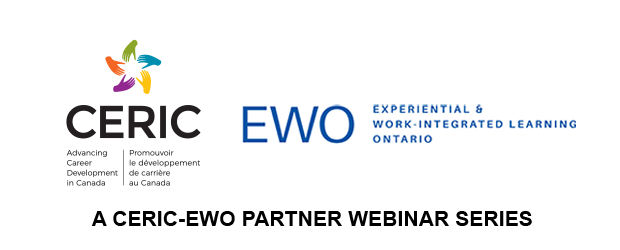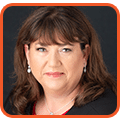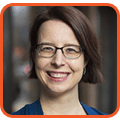
Presenters: Lorraine Godden & Carolyn Hoessler
Original Dates: February 25, March 4 & 11, 2021 – 3 hours of learning
Cost: $119
Group rates: If you register 5 or more participants from the same organization at the same time, you qualify for the group rate of 25% off registration fees. NOTE: This rate will automatically apply to the total payment amount when you register 5 or more.
Overview
Getting experiential learning (EL) and work-integrated-learning (WIL) right is important, and getting each experience right feels complex. Multiple stakeholders, aims and needs pose challenges to navigating relationships and designing experiences, while ongoing shifts to remote learning and restricted workplaces remove the usual options.
Who Should Attend
This new webinar series comes in response to a popular standalone webinar delivered earlier this year by our presenters and aims to further your learning on how to design effective experiential learning. Participants don’t need to have seen the standalone webinar to attend the series.
This deeper series will teach you how to navigate among stakeholders (e.g., learners, partnering organizations, senior school or institution administrators, government and funders), identify the often-unstated intended outcomes of the experience, and design experiences within your context. Our two presenters will share the Outcome-Based Experiential Learning (OBEL) framework they developed as a concise and guided design process to enable you to successfully navigate EL planning and implementation. Furthermore, participants will also receive a complimentary copy of the new OBEL guide.
This webinar series is a good fit for:
- Staff, educators and community partners working to co-design, recruit for, advise students, and offer experiences;
- Community partners seeking to define why and how they will host experiences; and
- Educational institutions and schools creating strategies.
Webinar #1: What Are We Seeking? Naming the Outcomes for EL with Stakeholders
- Specify your stakeholders
- Specify intended outcomes of experiential learning
- Identify (or design a plan to co-identify) specific intended outcomes of each stakeholder group
- Distinguish between opportunity types (WIL, practice spaces, projects and employment programs)
Webinar #2: What Will They Do? Identifying the EL Design Factors – Including in Emergent Contexts
- Identify the five design factors influencing the possible experiences
- Using the five design factors, define your current context including its possibilities and constraints
- Identify how to adapt existing or planned experiences when the factor changes in your context
Webinar #3: Will It Be a Success? Aligning EL Outcomes, Activities, Assessment and Evaluation
- Refine the design factors and intended outcomes including adaptation options
- Select and design appropriate and feasible assessment options
- Confirm alignment between intended outcomes, activities, assessment and evaluation utilizing the OBEL planning template
What are people saying about Carolyn & Lorraine’s webinars?
I am currently developing a 4-year framework for a program that will include a huge EL component, so this is going to be very helpful! Provides a good structural foundation.
Lots of great tips on planning and assessing learning outcomes within EL.
It covered so many aspects of experiential learning models and models of evaluation. I will share the information with colleagues to better inform our application of experiential learning.
I am pleased to have had my conceptions about what Experiential Learning is and how it is best achieved in our schools confirmed. I like the time frame of about 10 minutes at the beginning to review previous material and relate feedback from what has been shared, 35 minutes to cover the new information being presented, and approximately 15 minutes to open things up for answering questions. I also like the opportunities created to obtain feedback from participants via a platform like Mentimeter.
I like that this webinar series made me think more deeply about outcomes and partnerships as well as being more intentional in designing EL experiences for my stakeholders.
“I appreciate being given ideas for how to move forward with alternate activities when I can’t really put students into the workforce. Thank you very much.”
“Thank you CERIC for offering a webinar on this topic. Applying experiential learning to remote environments is a very challenging task and it is very helpful to have experts and practical resources to scaffold our learning.”
“This webinar was excellent! The content was research-based with clear explanations and actionable ideas that I can implement right away. The webinar addressed a very real current challenge with practical solutions that can be adapted to different contexts. The speakers were engaging and knowledgeable and the interactive pieces just added to that. I was very impressed with this webinar.”


